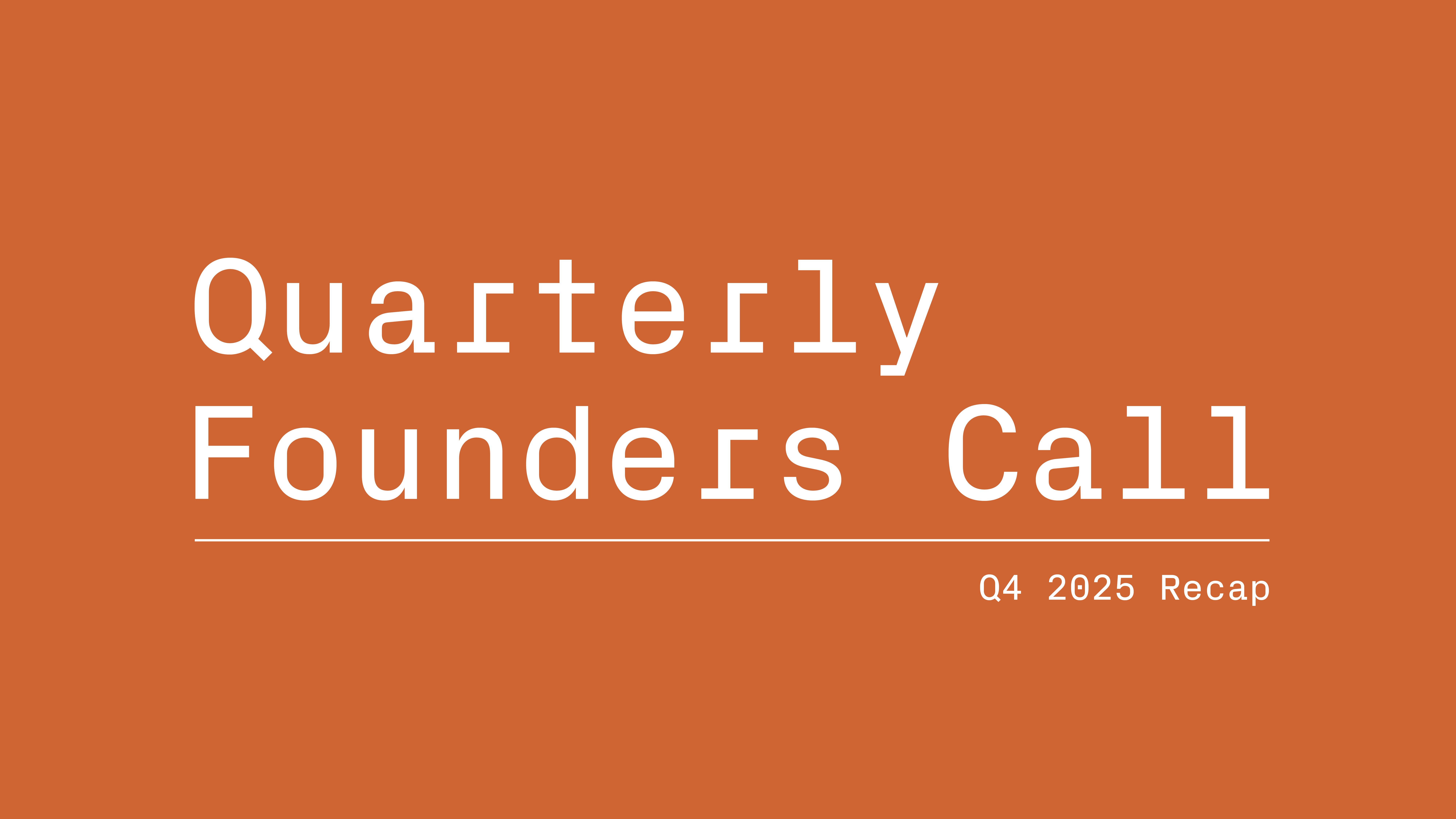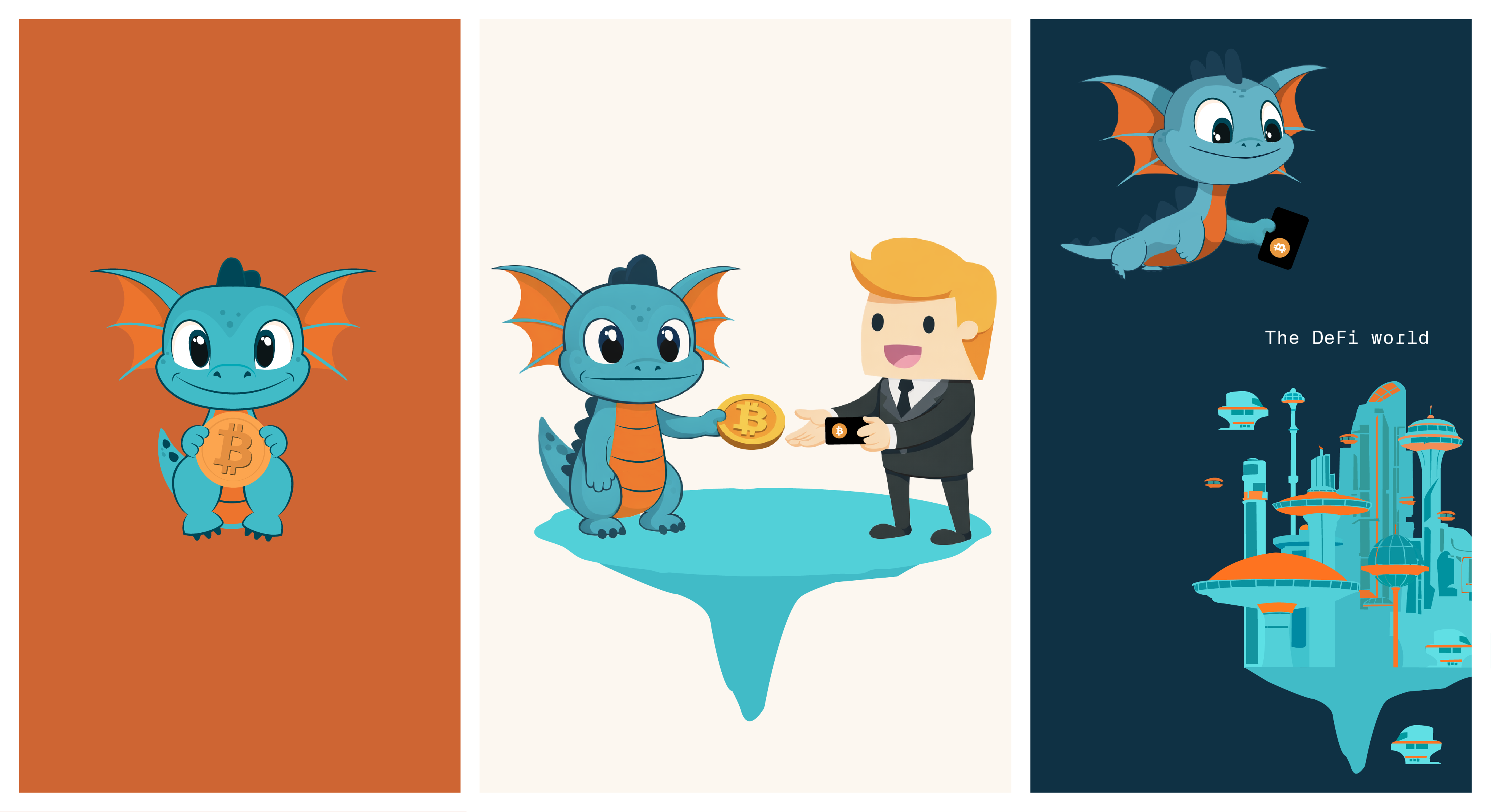Welcome to the Babylon AMA, where we'll dive deep into Babylon's Mainnet launch and explore the exciting world of Bitcoin staking with co-founder Fisher Yu.
Moderator: Hello, everyone, and welcome to our AMA with Fisher, co-founder of Babylon Labs. Fisher, are you excited about the mainnet launch?
Fisher: Absolutely! I can't believe it's almost here. We've been working towards this for a long time, and it's finally happening in just 24 hours.
Moderator: We've got lots of questions from the community, but let's start with some general ones. Fisher, what was the vision and motivation behind Babylon and connecting Bitcoin with the PoS ecosystem?
Fisher: David Tse and I founded Babylon in January 2022, during the DeFi summer where we observed a fragmented blockchain landscape with isolated ecosystems. Our vision was to create a unified, healthy, and sustainable blockchain ecosystem through security sharing, where larger blockchains empower smaller ones by lending their security to them.
Moderator: Why are we using a phased launch approach for Babylon?
Fisher: Let’s first dive into what Babylon is launching: Bitcoin Staking. Bitcoin Staking allows Bitcoin holders to turn their BTC into stakable assets to provide security to Proof of Stake (PoS) systems and earn staking rewards. This creates a two-sided security sharing marketplace where the supply side is the security provided by BTC holders and the demand side comes from decentralized systems like PoS chains, AppChains, Ethereum Rollups, etc.
We are using a phased launch approach to bootstrap the market carefully, starting with the supply side. Phase one focuses on Bitcoin holders locking their Bitcoin to turn them into stakable assets. In phase two, we will bootstrap the demand side by launching the Babylon PoS chain as the first recipient of Bitcoin security. Phase three enables Bitcoin multi-staking, allowing Bitcoin holders to secure multiple PoS systems. This phased approach allows us to carefully and gradually implement Bitcoin staking, which we believe is the third native use case for Bitcoin, alongside holding and payments.
Moderator: Let's talk a little bit about the testnet experience. Can you share some insights on user participation and growth?
Fisher: In the first half of 2024, we launched both Testnet 3 and Testnet 4 which were very successful. Testnet 3, which mimics what Phase-2 will look like, saw over 100k stakes within 48 hours. Testnet 4, simulating Phase-1, received over half a million stakes in a month. This helped us stress-test the system and fix bugs thanks to the valuable feedback from our community.
Moderator: What were some of the technical challenges that Babylon faced during the testnet, if any?
Fisher: Yes, there are always challenges. For example, during Testnet 4, our community provided a lot of feedback on our fixed transaction fees. We quickly adapted and made the fees more customizable by allowing users to determine the transaction priority. This required significant engineering effort to act quickly and helped improve the user experience.
Moderator: Alright, let’s dive into the upcoming mainnet! The community is curious about the staking cap in Phase-1. Will it increase like it did during the testnet?
Fisher: Yes, we'll start with a 1,000 Bitcoin cap for security reasons, but it should gradually increase as Phase-1 progresses.
Moderator: Why did you decide on a 1,000 Bitcoin initial staking cap?
Fisher: We want to introduce Bitcoin staking cautiously. Limiting the initial volume to 1,000 Bitcoins helps manage risk in case of any unforeseen events.
Moderator: Now that you’re mentioning it, in case there is a black swan event, that are the risks for users who stake their BTC?
Fisher: Like any blockchain protocols, the most common risk is not properly managing your private key, but that is beyond the scope of Babylon. Babylon's design prioritizes your funds' safety even in worst-case scenarios. You maintain full control of your Bitcoin throughout the staking process, and in Phase-1, your staked Bitcoin cannot be slashed because the system does not require you to sign consent to slashing. While extensive security audits have been conducted to minimize code vulnerabilities, it's important to acknowledge that any system can experience technical issues or downtime, potentially affecting your ability to unbond or withdraw. However, the built-in time-lock script guarantees that you'll eventually receive your staked Bitcoin, as long as the Bitcoin blockchain itself remains secure.
Moderator: How are the finality providers selected? Can you explain a little bit more about their role and how they are incentivized to act honestly?
Fisher: Sure, let's first clarify what a finality provider is. Essentially, it's a term we use for validators in any PoS or decentralized system that are specifically backed by Bitcoin. Validators are responsible for proposing and validating new blocks. In a PoS system, the more stake a validator receives, the more likely they are to be chosen to perform these tasks. In the context of Bitcoin staking, finality providers are simply validators who receive Bitcoin as their staked asset.
Now, regarding how we select finality providers, it's not a centralized process where the Babylon team handpicks favorites. Instead, we invite all entities – be it companies, teams, or individuals – who participated in our previous testnets and demonstrated their capability to join the mainnet. To ensure compliance, we conduct a Know Your Business (KYB) checks on these providers. So that's how we curate and verify the finality providers you'll see in our system.
Moderator: Can new finality providers join after launch?
Fisher: For Phase-1, finality providers need to have participated in Testnet 4. They can still technically accept stakes without registering, but they won't be displayed on our website or share in the points earned. In Phase-2, with the Babylon chain live, it will become more decentralized.
Moderator: Could you tell us a little bit about how the covenant committee members are selected? Will that change? Will members rotate over time? How is that going to work? First, explain how it works and then the selection process.
Fisher: The covenant committee’s main role is to co-sign transactions and enforce certain rules. Contrary to popular belief, the committee isn't a multi-sig wallet or bridge like in other projects and doesn’t control Bitcoin users.
For example, in Phase-1, the committee ensures the 7-day unbonding period is upheld and that unbonded Bitcoin returns to the staker. Think of it as a final check before Bitcoin is released. In Phase-2, the committee will also enforce slashing destinations to ensure that slashed Bitcoin goes to the correct address, not someone's pocket.
We selected the current committee by inviting reputable teams from different industry sectors, given Bitcoin Staking's broad impact. The aim is to expand and rotate membership as the project evolves.
Moderator: Could you dive a little bit deeper into the Phase-1 point system, and how it will benefit users in the long run?
Fisher: Since there's no staking reward in Phase-1, we use a point system to track contributions. There are a fixed number of points allocated per block, which are shared proportionally among active stakes within that block. This prevents latecomers with large amounts of Bitcoin from diluting others' contributions.
Moderator: what happens to my points if I unbond my stake? Will they stay with my address?
Fisher: Yes. (Editor note: Whatever points accrued before unbonding will not be affected by it).
Moderator: If I stake through a Liquid Staking Token (LST) provider, will I get Babylon points?
Fisher: No, LST providers handle staking and points themselves. We have no control over how they manage those.
Moderator: What are the biggest challenges and opportunities for Babylon in the coming months?
Fisher: The opportunity lies in unlocking the demand side by integrating with various PoS systems interested in integrating with Babylon for Bitcoin Staking (like Cosmos chains, Ethereum dApps, DA layers, Oracles, etc.).
The challenge is the technical stack diversity of these systems. Creating our marketplace, and a great user experience, requires significant design and engineering work to seamlessly integrate with each system.
Moderator: Great, thanks. The community is also wondering if you have a rough timeline for Phase-2 and Phase-3 launch?
Fisher: The timeline depends on several factors, primarily the success of Phase-1. We don't want to rush it, but unlike some projects, we won't ask people to lock their assets for years.
Moderator: Thanks, moving into the last few questions here. What's your long-term vision for Babylon?
Fisher: We aim to build a Bitcoin-secured decentralized world, with Bitcoin staking as the first step. After the launch, we'll continue development for other protocols, such as data availability layers, trustless bridges, and liquidity marketplaces, ultimately making Bitcoin the cornerstone of the blockchain world.
Moderator: Moving to the last phase of the AMA, audience questions. Here is the first one: I'm curious about the Babylon token. Will there be any upcoming tokens or rewards? Can you reveal any details about it?
Fisher:In Phase-1, there's no Babylon chain, so there won't be a Babylon token. The token will be introduced in Phase-2 as the native token of the Babylon PoS chain which will enable staking rewards for Bitcoin holders. As for the launch timing, it depends on various factors, including the success of Phase-1.
Moderator: Will you provide a video tutorial on how to stake?
Fisher: Yes, we will. LST providers will also have their own tutorials.
Moderator: When staking, do you have to give up custody of your BTC?
Fisher: No, Bitcoin staking on Babylon is trustless and self-custodial. You retain full control of your Bitcoin.
Moderator: We saw fees were lowered after community feedback, but they're still fixed for certain transactions. What are the possibilities for make other transactions dynamic?
Fisher: For staking transactions, the staking fee is customizable by the user. However, dynamic fees for unbonding transactions aren't possible right now due to security concerns, particularly the risk of slashing. We've carefully analyzed past data to set the current unbonding fee at a level that ensures high inclusion probability, even during busy network periods. Introducing tiered fee options for unbonding would require substantial development work and could potentially create new vulnerabilities. While we may explore this feature in the future, our current priority is maintaining the security and integrity of the protocol.
Moderator: Once the initial staking cap is full, when will it be increased? Will there be a rush to stake?
Fisher: We expect high demand for the initial cap, so please don't rush or engage in any gas wars. Babylon is a long-term project with ample future opportunities. We cannot provide an exact timeline for cap increases, but it won't be years.
Moderator: What factors influenced the minimum and maximum BTC staking limits?
Fisher: The minimum (0.005 BTC) ensures staking amounts cover transaction fees. The maximum (0.05 BTC) promotes broad participation and prevents a few large entities from monopolizing the cap.
Moderator: Can I stake from a cold wallet?
Fisher: Currently, only Keystone wallet is supported via QR codes. Avoid using other hardware wallets as it could make your Bitcoin irretrievable. We're currently working on broader hardware wallet compatibility.
Moderator: How can you encourage users with Bitcoin in hardware wallets to stake?
Fisher: They should not use hardware wallets for staking at this time. They can either use our CLI tools or transfer their Bitcoin to a supported software wallet.
Moderator: Thank you, Fisher, for your time and insights today! We're all excited about the mainnet launch tomorrow.
Fisher: Thank you, and thanks to the community for your support!
Ready to Dive into Babylon's Bitcoin Staking?
Cap-2 is Just Around the Corner! Head over to our blog for more information on Phase-1, Cap-2.
For more information about the Babylon project, please visit:


.png)
